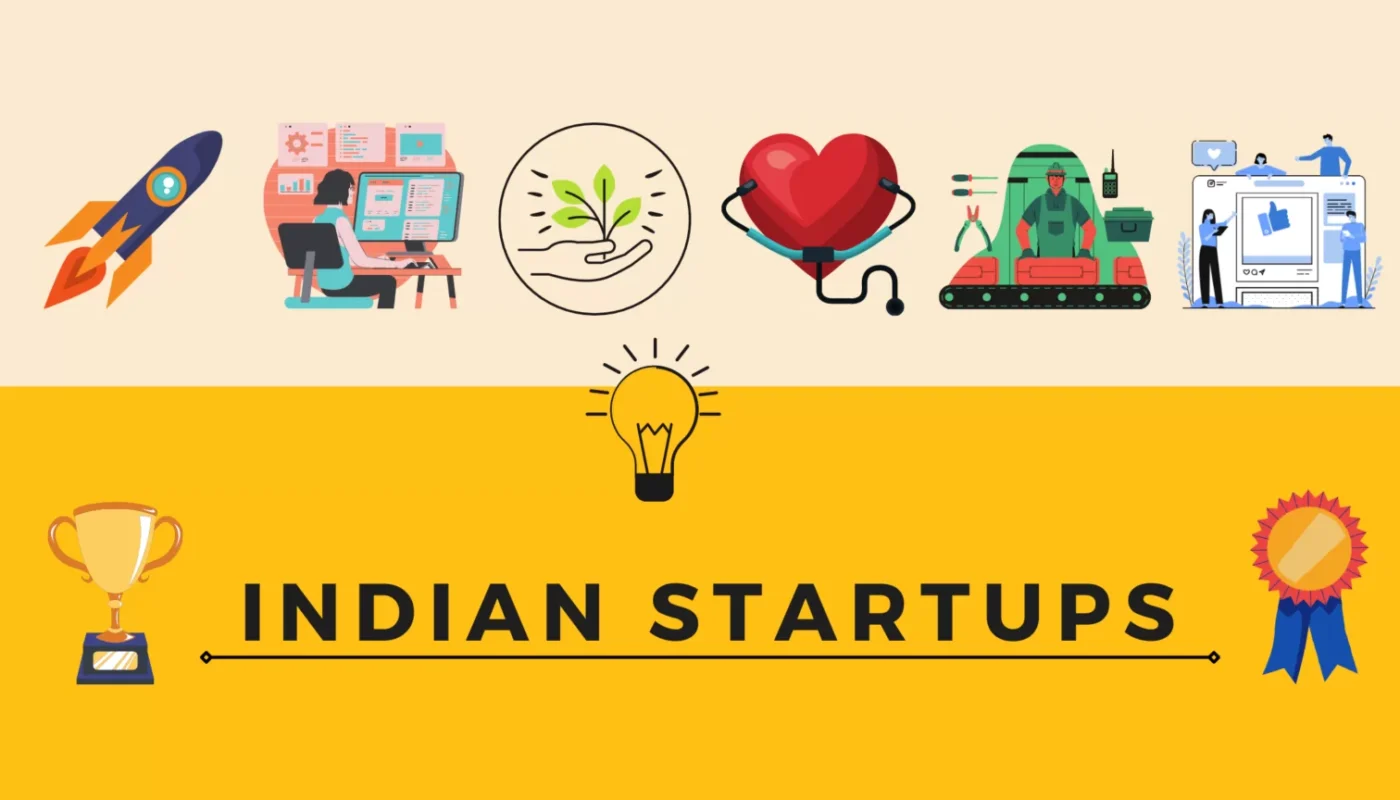Pioneering Paths: A Chronicle of Indian Startup History and Success
Introduction:
In the grand tapestry of global entrepreneurship, the Indian startup ecosystem emerges as a vibrant thread, weaving together innovation, resilience, and ambition. From humble beginnings to meteoric successes, the journey of Indian startups is a testament to the nation’s entrepreneurial spirit and its ability to navigate challenges while seizing opportunities. This article delves into the rich history and compelling success stories that have defined the evolution of Indian startups, showcasing their transformative impact on the economy and society at large.
The Genesis of Indian Startup Culture:
The roots of India’s startup culture can be traced back to the early 1990s when economic liberalization paved the way for a wave of innovation and entrepreneurship. The emergence of IT services companies like Infosys and Wipro laid the foundation for a tech-driven ecosystem, fostering a generation of aspiring entrepreneurs who sought to harness the power of technology to solve complex problems.
However, it wasn’t until the early 2000s that the startup landscape truly began to take shape, buoyed by factors such as increasing internet penetration, rising smartphone adoption, and a growing pool of skilled talent. With the launch of Flipkart in 2007, India witnessed the dawn of its e-commerce revolution, setting the stage for a flurry of startups across various sectors, from fintech and healthcare to education and logistics.
The Rise of Unicorns:
As the Indian startup ecosystem matured, a new breed of companies emerged, propelled by ambitious founders, strategic investors, and a burgeoning consumer market. Flipkart’s journey from a modest online bookstore to a multi-billion dollar e-commerce behemoth served as an inspiration for countless entrepreneurs, demonstrating the transformative potential of disruptive innovation.
Following in Flipkart’s footsteps, a slew of startups such as Paytm, Ola, and Zomato achieved unicorn status, symbolizing their ascent to billion-dollar valuations. These success stories not only showcased India’s prowess in building scalable businesses but also attracted the attention of global investors eager to capitalize on the country’s burgeoning digital economy.
Navigating Challenges and Seizing Opportunities:
Despite the remarkable growth of the Indian startup ecosystem, it hasn’t been without its fair share of challenges. Regulatory hurdles, infrastructure bottlenecks, and intense competition have tested the resilience of startups, requiring them to innovate and adapt in order to thrive in a rapidly evolving landscape.
Moreover, the COVID-19 pandemic posed unprecedented challenges for Indian startups, disrupting supply chains, dampening consumer demand, and forcing businesses to rethink their strategies overnight. Yet, amidst the adversity, many startups demonstrated remarkable agility and resilience, pivoting their business models, leveraging technology, and forging strategic partnerships to weather the storm.
Building a Sustainable Future:
As Indian startups continue to chart new territories and redefine the contours of innovation, there is a growing emphasis on sustainability, inclusivity, and social impact. From renewable energy startups harnessing solar power to agritech ventures empowering farmers with technology, there is a concerted effort to address pressing societal challenges while creating value for stakeholders.
Moreover, the rise of social enterprises and impact-driven startups underscores a broader shift towards conscious capitalism, where profitability is not the sole metric of success, but rather a means to drive positive change and foster inclusive growth. By harnessing the power of technology, entrepreneurship, and collaboration, Indian startups are not only shaping the future of business but also shaping the future of society.
The Resurgence of Innovation: Evolution of the Indian Startup Ecosystem Post-2014
The year 2014 marked a significant turning point in the trajectory of the Indian startup ecosystem. With the ascent of a new government at the helm and a wave of digital transformation sweeping across the nation, India witnessed a resurgence of innovation and entrepreneurship. This article explores the dynamic evolution of the Indian startup ecosystem post-2014, highlighting key trends, milestones, and the transformative impact of policy reforms, technological advancements, and entrepreneurial zeal.
Policy Reforms and Enabling Ecosystem:
One of the defining features of the post-2014 era has been the concerted effort by the government to foster a conducive environment for startups to thrive. Initiatives such as the Startup India campaign, launched in 2016, aimed to streamline regulatory processes, provide access to funding, and nurture a culture of innovation. The introduction of measures such as tax incentives, easier compliance norms, and the establishment of incubators and accelerators bolstered the confidence of aspiring entrepreneurs and attracted greater investment into the ecosystem.
Technological Advancements and Digital Disruption:
The proliferation of smartphones, ubiquitous internet connectivity, and the democratization of technology played a pivotal role in reshaping the startup landscape. With over half a billion internet users and a burgeoning digital economy, India emerged as a hotbed of innovation, giving rise to a new breed of startups across diverse sectors such as fintech, edtech, healthtech, and agritech. Companies like Paytm, BYJU’S, and Practo leveraged technology to disrupt traditional industries, democratize access to essential services, and drive financial inclusion, thereby transforming the way Indians live, work, and transact.
Rise of Unicorns and Global Recognition:
The post-2014 era witnessed a remarkable surge in the number of Indian startups achieving unicorn status, with several companies crossing the coveted billion-dollar valuation mark. Flipkart’s acquisition by Walmart for $16 billion in 2018 marked one of the largest deals in India’s startup history, underscoring the global appeal and potential of Indian startups. Other unicorns such as Ola, OYO, and Swiggy garnered international attention, attracting investments from leading venture capital firms and strategic investors keen to capitalize on India’s burgeoning consumer market and tech talent pool.
Startup Ecosystem Beyond Metro Cities:
While cities like Bengaluru, Mumbai, and Delhi-NCR have traditionally been the epicenters of India’s startup ecosystem, the post-2014 era witnessed a democratization of entrepreneurship, with startups mushrooming in tier 2 and tier 3 cities across the country. The proliferation of coworking spaces, entrepreneurial hubs, and digital infrastructure empowered aspiring founders from smaller towns and cities to pursue their dreams, driving innovation and economic growth in previously underserved regions.
Challenges and Opportunities Ahead:
Despite the remarkable progress, the Indian startup ecosystem continues to grapple with challenges such as regulatory bottlenecks, access to talent, and market fragmentation. Moreover, the COVID-19 pandemic posed unprecedented challenges, disrupting supply chains, stifling consumer demand, and testing the resilience of startups. However, amidst the adversity, Indian startups demonstrated remarkable agility and resilience, pivoting their business models, leveraging technology, and forging strategic partnerships to navigate the crisis.
Looking ahead, the future of the Indian startup ecosystem appears promising, fueled by a confluence of factors including supportive government policies, technological innovation, and a burgeoning consumer market. With a renewed focus on sustainability, inclusivity, and social impact, Indian startups are well-positioned to drive economic growth, foster innovation, and shape a brighter, more equitable future for the nation and beyond. As the journey continues, the spirit of entrepreneurship and innovation remains the guiding force, propelling India’s startup ecosystem to greater heights.
Conclusion:
The history of Indian startups is a saga of grit, determination, and innovation, characterized by bold visionaries who dared to dream big and disrupt the status quo. From humble beginnings in garages and dorm rooms to global recognition on the world stage, Indian startups have come a long way, yet their journey is far from over.
As the ecosystem continues to evolve and expand, fueled by a relentless spirit of entrepreneurship and a supportive ecosystem of investors, mentors, and policymakers, the future holds boundless possibilities. With a newfound emphasis on sustainability, inclusivity, and social impact, Indian startups are poised to not only drive economic growth but also catalyze positive change and shape a brighter, more equitable future for generations to come.





Hi it me marbell